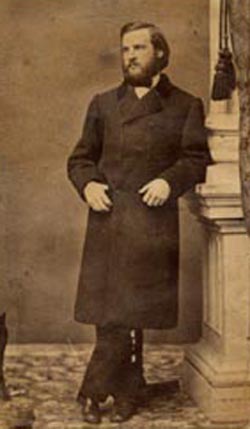In the 1870s, a little more than a decade before the first of his two non-consecutive terms as U.S. President, Grover Cleveland acted as a hangman in New York State’s Erie County, making sure murderers received the drop. It’s not likely that Cleveland wore a hood since he was the sheriff and everyone knew he was performing the deed. From an article in the July 7, 1912 New York Times that recalls the Commander-in-Chief as an awkward, young executioner:
In the office of Sheriff of Erie County there has been for many years a Deputy Sheriff named Jacob Emerick. Mr. Cleveland’s predecessors had from time immemorial followed the custom of turning over to Emerick all of the details of public executions. So often had this veteran Deputy Sheriff officiated at hangings that he came to be publicly known as “Hangman Emerick.” Although a man of a rugged type and not oversensitive, Emerick after a while realized that this unfortunate appellation was seriously embarrassing to his family. Therefore a feeling of resentment began to grow within him.
During Cleveland’s term as Sheriff a young Irishman was convicted of the murder of his mother, and was sentenced to be hanged. The case of “Jack” Morrissey developed some features that excited widespread public interest and some sympathy for the convict. Efforts to obtain a pardon failed, however, and the final date of execution was fixed.
Then it was that Cleveland surprised the community and his friends by announcing that he personally would perform the act of Executioner. To the remonstrance of his friends he refused to listen, pointing to the letter of the law requiring the sheriff to “hang by the neck,” &c. He furthermore insisted that he had no moral right to impose upon a subordinate the obnoxious and degrading tasks that attached to his office. He considered it an important duty on his part to relieve Emerick as far as possible from the growing onus of his title of “Hangman.”
“Jake and his family,” said Mr. Cleveland, “have as much right to enjoy public respect as I have, and I am not going to add to the weight that has already brought him close to public execution.”
Thus it was Sheriff Cleveland, standing behind a screen, some twenty feet away from the law’s victim, pushed the lever that dropped the gallow’s trap upon which poor Morrissey stood.
A few Buffalo people still live who can bear out the statement that this little tragedy made Mr. Cleveland a sick man for several days thereafter. He was not so stolid and phlegmatic as very many persons have been told to believe.•

